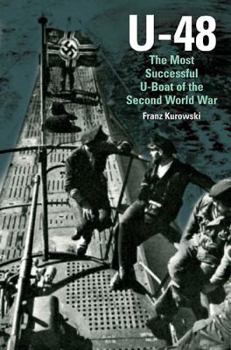U-48: The Most Successful U-Boat of the Second World War
Following the signing of the Treaty of Versailles in 1919, Germany was not permitted to build or operate submarines. However clandestine training onboard Finnish and Spanish submarines took place and U-boats were still built to German designs in Dutch yards. At the outset of the Second World War, D nitz argued for a 300-strong U-boat fleet, since his force of 57 U-boats 'could only inflict pin-pricks against British seaborne trade'. In August 1939, U-48 left Germany, commanded by 'Vaddi' Schultze, to take up a waiting position around England. It scored its first success on 5 September, when it torpedoed the British freighter Royal Sceptre, then the Winkleigh on 8 September. On both occasions - the first of many - Schultze showed himself to be a notable humanitarian: he addressed signals to Churchill giving positions of the sinkings so that crews could be saved. By 1 August 1941, U-48, the most successful boat of the Second World War, had sunk 56 merchant ships of 322,478 gross tons and one corvette. She was then transferred to the Baltic as a training boat. Schultze became commander of operation 3 U-Flotilla and later was appointed commander, II/Naval College Schleswig. He died in 1987 at the age of 78. U-48 was scuttled on 3 May 1945.
Format:Hardcover
Language:English
ISBN:1848326068
ISBN13:9781848326064
Release Date:March 2012
Publisher:Frontline Books,
Length:208 Pages
Weight:1.30 lbs.
Dimensions:0.9" x 6.5" x 9.4"
Related Subjects
HistoryCustomer Reviews
0 rating





